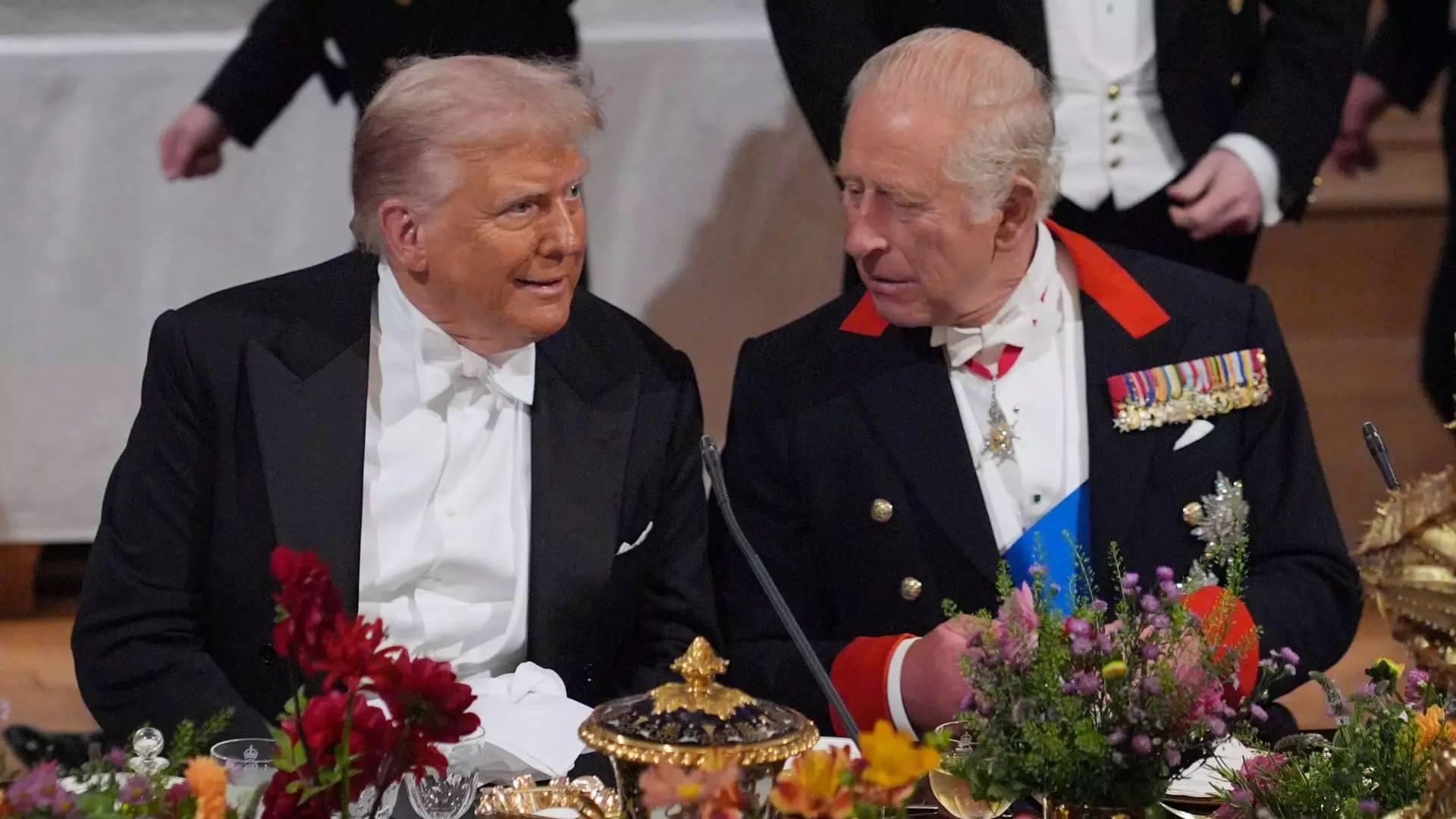The spectacle of Donald Trump’s visit to the United Kingdom was, undeniably, a carefully curated display of diplomatic pageantry designed to project strength and resilience. Yet, beneath the gleaming surface of royal ceremonies and pomp, the visit reveals a troubling disparity between show and substance. While the British government eagerly rolled out the red carpet, the real questions about the effectiveness and sincerity of these diplomatic gestures are scarcely addressed. The grandiosity of events at Windsor and Chequers may garner media headlines, but they obscure a troubling reality: genuine geopolitical progress remains elusive amid superficial displays of camaraderie.
Such displays often serve more as self-congratulation than as meaningful engagement. The invitation of lavish ceremonies and the declaration of economic investments—amounting to a staggering £150 billion—are intended to showcase Britain’s influence and attractiveness. Yet, these investments risk being superficial promises that, without concrete policies and strategic follow-through, amount to little more than political gestures. The image of Trump calling the state visit an “honor” can be seen as a desperate attempt to mask the underlying fragilities: unresolved trade disagreements, lingering geopolitical tensions, and the skepticism surrounding American leadership.
The Double-Edged Sword of Transatlantic Relations
The core of this visit—focused on finalizing trade deals and revisiting tariffs—embodies the complexities of modern diplomacy. While communiqués praise the prospects of a “mutually beneficial” deal, the unresolved issues linger ominously. The 25% tariffs on British steel and aluminum symbolize a broader tendency in U.S. trade policy to leverage short-term gains over long-term alliances. For Britain, deeply committed to maintaining its economic sovereignty and geopolitical independence, these tariffs are not a minor inconvenience but a reflection of the deeper power imbalance that still characterizes transatlantic relations.
Furthermore, Trump’s rhetoric about “refining” trade deals underscores a fundamental weakness: a transactional approach to diplomacy that often prioritizes immediate economic benefits over strategic stability. At what point does economic convenience overshadow human rights, environmental standards, and international law? The focus on trade, while vital, risks reducing international relations to mere barter, undermining the nuanced diplomacy needed in an increasingly complex global landscape.
Royalty and Reality: A Symbiotic but Flawed Relationship
The Western media’s focus on royal symbolism and Trump’s celebrity-like admiration for Britain’s traditions reveals a distorted view of what diplomacy should be. The grandeur—gun salutes, carriage rides, and speeches—creates an aura of grandeur that most Americans and Britons alike find appealing, yet it fails to address the substantive issues that threaten global stability. The choice to prioritize spectacle over meaningful dialogue diminishes the importance of leadership rooted in accountability and progressive policy.
Moreover, the warm words from King Charles praising Trump’s “commitment to resolving global conflicts” seem disconnected from the reality of the current geopolitical climate—marked by ongoing wars and rising tensions. These superficial diplomatic pleasantries do little to address the root causes of instability or to foster genuine international cooperation. Instead, they risk fostering a sense of complacency among political leaders, who may believe that appearances are enough to secure their interests.
Is the U.S.-U.K. Alliance Losing Its Relevance?
In a broader context, Trump’s visit can be viewed as an attempt by Britain to reaffirm its relevance on the world stage amid shifting global power dynamics. The promises of investment and renewed ties are valuable, yet they also highlight a dependence on American economic and political patronage that increasingly appears fragile. With Britain facing its own internal debates about sovereignty, post-Brexit realities, and the challenge of adapting to an increasingly multipolar world, these diplomatic moves may serve as temporary salves rather than long-term solutions.
The center-left liberal perspective would argue that true international strength derives from building resilient, equitable alliances and investing in diplomatic infrastructure rooted in shared values—not merely financial and ceremonial exploits. Trapped in a cycle of superficial displays, Britain and the U.S. risk perpetuating a facade of strength that ultimately fails to confront the pressing challenges of climate change, migration, and global inequality. It is in the deeper, progressive diplomacy that real power—and the potential for genuine global leadership—can be found.

